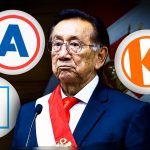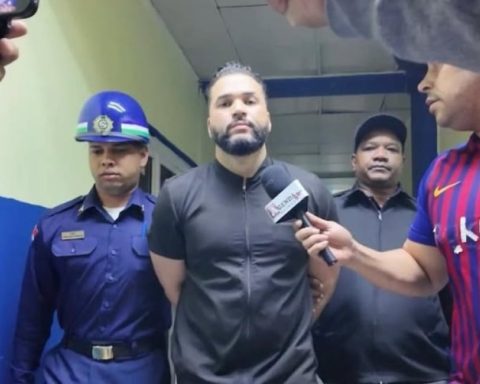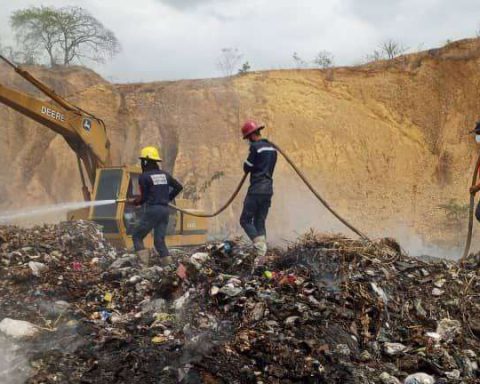Five months after the promulgation of the Law to Reinforce Nicaragua’s Adherence to the conditions for the electoral reform or Renacer Law, which enabled to President Joseph Biden to increase the pressure on Daniel Ortega, the Nicaraguan political scientist Manuel Orozco, of the Inter-American Dialogueconsiders that “there is a very large bias between what is said and what is being pressed”.
Orozco, director of the Remittances, Migration and Development program, said that if he had to evaluate the implementation of the law, he would give it a “D”, that is, almost failed, and explained that so far there have been ten sanctions since January when Ortega assumed his fourth consecutive term after votes considered illegitimate by the international community.
The Nicaraguan political scientist participated with Eric L. Olson, director of strategic policy at the Seattle International Foundation, in a panel of experts to evaluate the implementation of the norm, together with the lawyer María Laura Alvarado, representing the youth of the Blue and White National Unit (UNAB), with Javier Meléndez, director of Open File.
The Nicaraguan expert assured that there has been no review of Nicaragua’s participation in the Free Trade Agreement with Central America and the Dominican Republic, known as DR-Cafta as established by law.
Orozco listed the violations committed in the case of the trade agreement such as violations of the labor rights of Nicaraguans, the lack of access to labor protection by the State, as well as “economic extortions” to businesses that operate in free zones.
“Nor is it known what the report is on intelligence and participation on the part of Russia (in Nicaragua) and also despite the fact that the Administration (Biden) has told me that it is a priority for the United States to release political prisoners, since there is a There is a very large bias between what is said and what is being pressured in this regard,” Orozco lamented.
Orozco added that this situation has a lot to do with the fact that no one expected the magnitude of the impunity of the regime, which he described as “barbaric” as of 2020, and affirmed that at this moment the Biden administration is entering a stage of “reconsidering how to increase and apply” the standard.
In this new stage it is possible, according to the political scientist, that changes with a political content are observed and he mentioned the necessary coordination for the suspension of Nicaragua within the Organization of American States (OAS), where the application of Article 21 is pending. of the Democratic Charter, to which the countries where there has been a rupture of the constitutional order are subject.
From months before the presidential elections last year, the dictatorship increased the repression putting in jail 40 leaders, including seven presidential candidates, other opponents, businessmen and social leaders, with which he sowed fear and eliminated electoral competition.
“There is really a strong reaction on the part of the international community, on the part of civil society, of a level of passivity of the Biden Administration on the implementation of the law, but on the foreign policy of the United States towards Nicaragua, based on what is happening in the entire region,” he said.
Olson: “legitimate but scattered sanctions”
For Olson, a veteran connoisseur of the reality of Latin America, former deputy director of the Wilson Center’s Latin American program, the sanctions may be legitimate against officials of the Ortega regime, but they are perceived as scattered.
Olson explained that these measures usually have good results when they are well focused and do not point to generalities such as proposing a regime change. He gave the example of Cuba, with sanctions that he considers very broad, and that of Iran, which sought a negotiation on the future of that country’s nuclear weapons.
“I feel that sometimes because of the desperation we feel with the Ortega-Murillo regime, one asks to throw everything at it, sanction after sanction, hoping that they fall, that there is a change of government, that there is more democracy in Nicaragua. The analysis that exists is that this has little success”, considers the Seattle Foundation official.
Olson added that sanctions are not the magic wand that will solve Nicaragua’s problems, and added that the solution will depend on “the organizational capacity” of Nicaraguans both inside and outside the country to create a unified front that has the objective of giving voice to Nicaraguans. the needs of Nicaraguans.
For his part, Orozco explained that the Renacer law was designed to strengthen the elements related to a process that would lead the country to have free and independent elections last year.
“Trying to create a reckoning with different instruments so that the balance of power is favorable towards the Nicaraguan democratic movement. At no time is there the intention to remove a regime, any leader, dictator or not,” Orozco said..
In that sense, Biden was legally endowed with various tools in the law, such as the possibility of sanctions coordinated with the international community, the monitoring of international financial institutions in Nicaragua, sanctions on individuals involved in acts of corruption or obstruction of free elections, and the that perhaps aroused more attention worldwide: the possibility of an investigation of the businesses of the Ortega Murillo family.
Section 11 of the Renacer Law refers to “leveraging and acting” on the human rights situation and in another part of the norm it is proposed to report the conditions of censorship and disinformation that exist in the country. “There are a number of loose ends that need to be spun. Formally there is no opposition, there is fragmentation, there is a blue and white spirit, but the regime prevails with great impunity,” Orozco stressed.
Alvarado, from UNAB, expressed that the situation in which the population finds itself, under systematic repression, a serious economic crisis and the effects of the covid-19 pandemic.
In the case of party structures, Alvarado said that they face the challenges of strengthening their channels of communication and dialogue with diaspora organizations, integrating a disciplinary team of experts who support political lobbying so that measures are taken against the Ortega regime , as well as confronting the persecution of internal leadership.
“The sanctions must allow the repression structure established by the regime to be weakened,” added Alvarado.

















